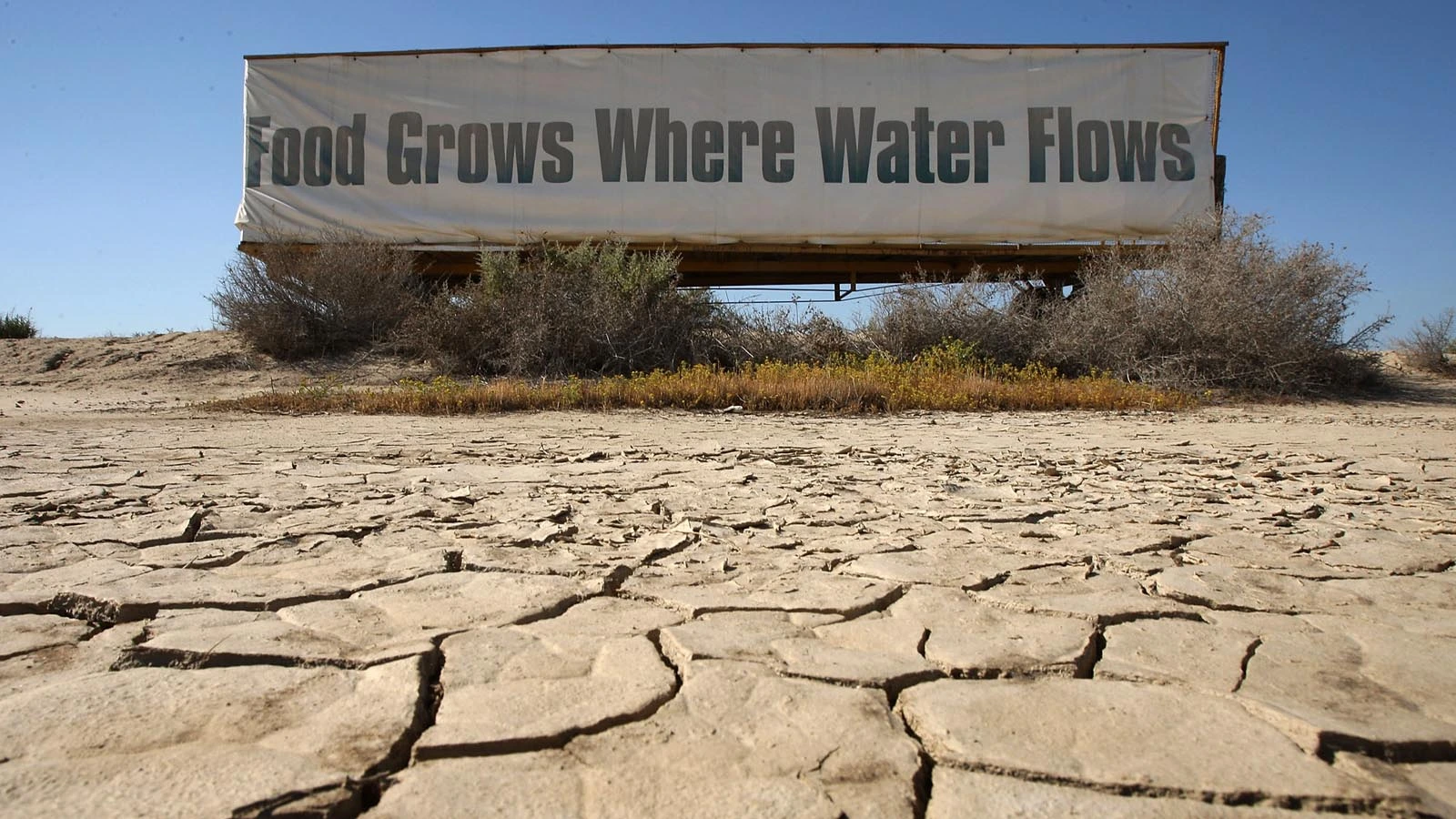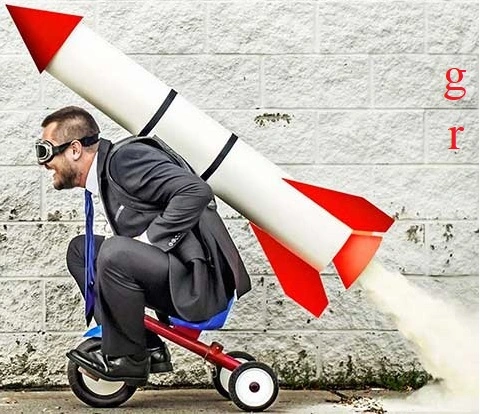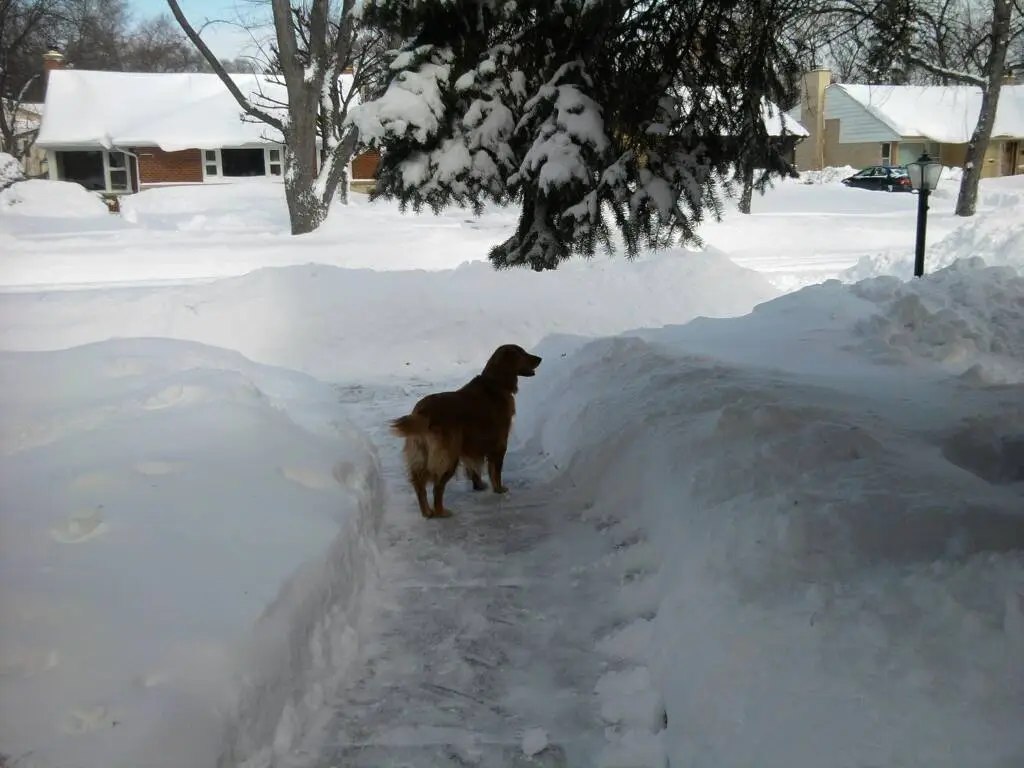The report looked at “major,” “severe,” and “extreme” scenarios. The authors found that the “major” case would cost the world $3 trillion over a five-year period, which they estimated has a 2.3% chance of happening per year. Over a 30-year period, those odds equate to about a 50% probability of occurrence — assuming the risks are not increasing each year, which they are.
IMHO increasing food insecurity across the globe will be one of the major issues driven by climate change. If crops fail repeatedly it is not gonna go well for society.
That’s one of the reasons I wanted to be sure we have an area for a garden at our house. I’d like to be as self sufficient as possible, so that we’re less impacted by all of the shortages we’ve seen over the last few years. The shortages will become more common in the future.
Solid thinking. But how big a garden does a family need? And will you always be allowed enough water for it?
My lawn is pretty much gone after the drought we’ve had for a couple years now. Not sure I’m going to re-plant grass if this is the new normal. And not sure how to know what the new normal is.
I’m in the PNW, and we’re on a well, so water is no issue. We’d definitely need a larger garden than we’re willing to maintain to be completely self-sufficient, but we can heavily subsidize our fruits and veggies with not a lot of work. My best friend has an area in his backyard that is about 25 feet, by 10 feet, and almost all of his vegetables come from his garden. His parents live on a couple acres and have a garden twice that size, and they’re completely self-sufficient, with a bunch of excess. They also have some fruit trees though, about 10 orange trees, some lemon trees, and various other fruits.
I’ve been looking into hunting too, to harvest my own meat. I’ve tried being a vegetarian, and I hated it. But I also hate contributing to the industrial meat complex. I figured that if I’m going to continue eating meat, I need to be willing to do what’s necessary to harvest it. My wife isn’t really on-board with that idea though, so it’s something I’m slowly trying to convince her to agree to. Once she does then I’m going to try deer hunting. I figure 1 deer probably has enough meat to last the two of us for the whole year, or most of the year.
Typing all of this out is making me feel like some sort of doomer/prepper. I don’t think I’m those things, I just like the idea of being as self-sufficient as possible, and getting our own quality, organic food. I’d raise chickens too if we could, but our HOA says no chickens. I did see a chicken coupe in a neighbor’s backyard, so maybe we can get away with it. We’re new to this neighborhood, so I’ll feel it out first.
If you’re just starting out, you should consider a food forest. You plant an area with perennial plants at every layer (tree, bush, vine), and with the right setup there’s almost no labor involved. Add some chickens and all you need to do is harvest.
https://projectfoodforest.org/what-is-a-food-forest/
It’s what I’d do if I had the land
Thank you! I’ll look into this. We finally have a little land after years of working and saving, and I’m looking forward to cultivating it this spring.
Try fishing first before hunting, it’s a lot easier and if it makes you too squeamish (gutting, prepping, ect) then it’s a lot easier to offload old fishing gear than firearms
Not to mention the barrier to entry is a lot lower
Plus being in the PNW (I am as well) fishing spots are basically everywhere
Not to mention catching some good sized fish are more than a few meals in size and they’re pretty common
I’m already a fisherman, although not a very good one. I was a decent fisherman when I was younger, but something changed and I’m not that good at it anymore. I’ve watched a bunch of videos and read a couple of books, but I still skunk out more often than not. I’ve been at a spot for hours before, had someone walk up 3 feet from where I’m fishing, catch their limit in half an hour, and take off. I’ll continue fishing for another hour and not catch anything. I have no idea what I’m doing wrong. I even bought all new gear, thinking that maybe mine was like old and smelly or something, and it didn’t change anything.
As with most endeavours, it helps to do some networking. Get out there at all hours and all conditions (be safe!) checking to see who is out when. Pay special attention to those who seem to catch fish quickly; anyone can catch their limits if they spend 40+ hours a week with wet line.
Try to make the acquaintance of the successful ones and get tips. Some will be secretive, but most are happy to share their knowledge. It quickly becomes apparent that they are mostly doing the same things at the same times.
I used to consider myself a pretty good angler. Then we moved to live at a lake that I had never fished before. I was getting skunked so often that I just assumed the fishing wasn’t great. Then I started hanging out with others and learned that my old techniques were useless, except under specific circumstances. I adopted the new techniques and now think that this lake may be one of the best fisheries in the province for subsistence angling.
Yeah, I guess that’s what happened to me. I learned to fish in the high Sierra Nevadas, and I’m still pretty good up there. But those techniques don’t seem to work in the PNW.
The best fisherman I know says to walk until you can smell the fish. That always seemed nonsensical to me, and I assumed he was trolling me. But last year I was walking along the water’s edge and actually smelled fish! So I think he was being truthful. I’ll definitely give that a try this spring.
If you and your wife have never tried venison before I would recommend you find a source for a few pounds of wild venison to try before you make the time/money investment into hunting. It would suck to spend $1000 on gun, tag, time, and butcher fees just to learn that you don’t like the taste. And it definitely has a taste, I wouldn’t call it bad, but it is different.
My family only accepts my venison ground in recipes with plenty of seasoning e.g. pasta and tacos.
1 deer will definitely supplement your meat diet, but it won’t allow you to maintain the standard American 1 meat item per lunch/supper diet. I killed 2 deer this year and I ended up with about 130lbs of meat total after butchering and jerky. That was on private land. Expect less success on public land.
I have eaten venison before, but it was when I was a little kid. My friend’s dad was an avid hunter, and they always had venison jerky in a jar on the counter. I remember it being the best tasting jerky I’ve ever eaten. I would like to taste it as a cooked meat in a dish though. Good idea about sourcing some somewhere. I’m going to do that to be sure we actually even enjoy it. I think I will enjoy elk based on what I’ve read, but I have been a little worried about the potential gamingness of venison.
I already have a .308 that I use for target shooting, and it’s more than adequate for deer hunting. My son and I went scouting for deer last summer, and it wasn’t looking very promising. But I recently gained access to some amazing hunting territory, so I’m sure I can be successful if I follow through with it.
Thanks for the recommendation and information.
And will you always be allowed enough water for it?
That’s an essential element to consider, and the answer is: locally appropriate plants, compost, mulch, rainwater harvesting, and greywater. All of these things will work regardless of municipal water shortfalls, political problems, etc.
Examples of locally appropriate plants: local so-called “native” perennials, and annuals that are well situated for local conditions. For example, tepary beans are great in desert areas while typical beans from most seed packets are not. And conversely, tepary beans don’t fare well outside of a desert. Plants evolved growing without us. Picking the right varieties and then giving them a boost with mulch and greywater gives awesome results.
Very good points.
Every society is three meals away from chaos. I guess that’s still valid.
I think I’ve driven past that trailer before. It’s off the 5 freeway in California’s Central Valley. The guy who puts them up is not a climate activist. He’s just very Republican and blames Gavin Newsom and the Democrats for water being expensive in California.
You’re right! I’ve seen that too. It’s near the billboards that say “pray for rain”.
Is this comment responding to the wrong thing?
The thumbnail on the preview card and the header image in the article is what I meant.
The trailer is in the thumbnail.
oh yeah and some folks will die but what can we do about the trillions???!!!
Lack of food and water will lead to war, and the war machine will pump even more carbon into our atmosphere, leading to more drought and less food and water. It’s a self-sustaining cycle and I’ve no idea how we avoid it at this point.
Good water recycling systems (and desalination systems for those on the coast) combined with low cost and distributed synth bio based food production (i.e. precision fermentation, or biomass fermentation) could help relieve some of the strain on the food and water needs.
Don’t worry, the nuclear winter will cancel it out.






